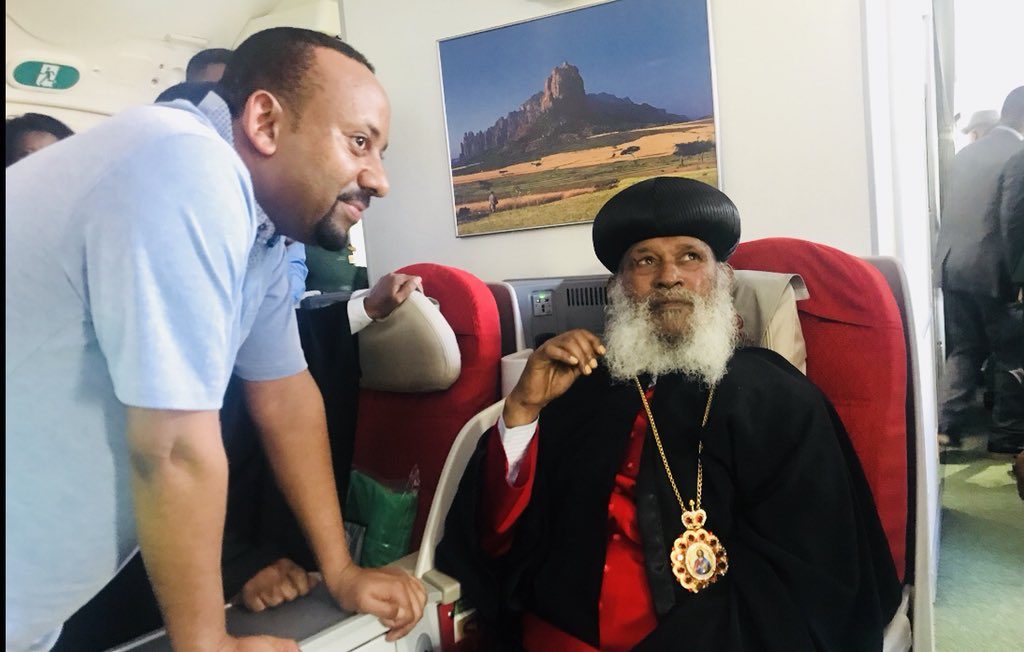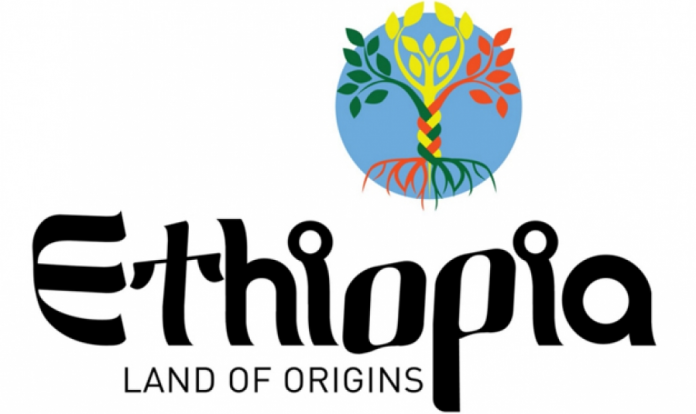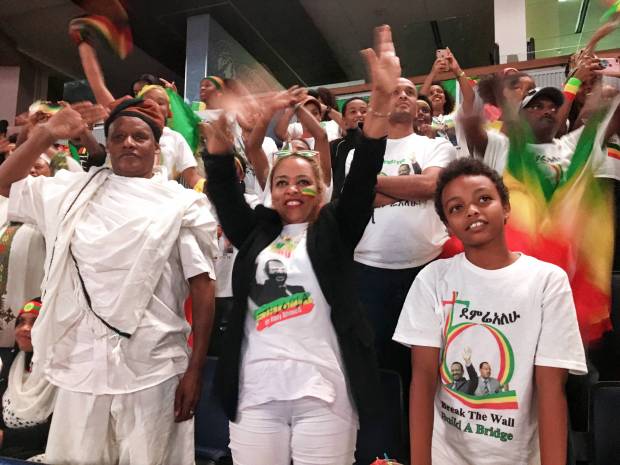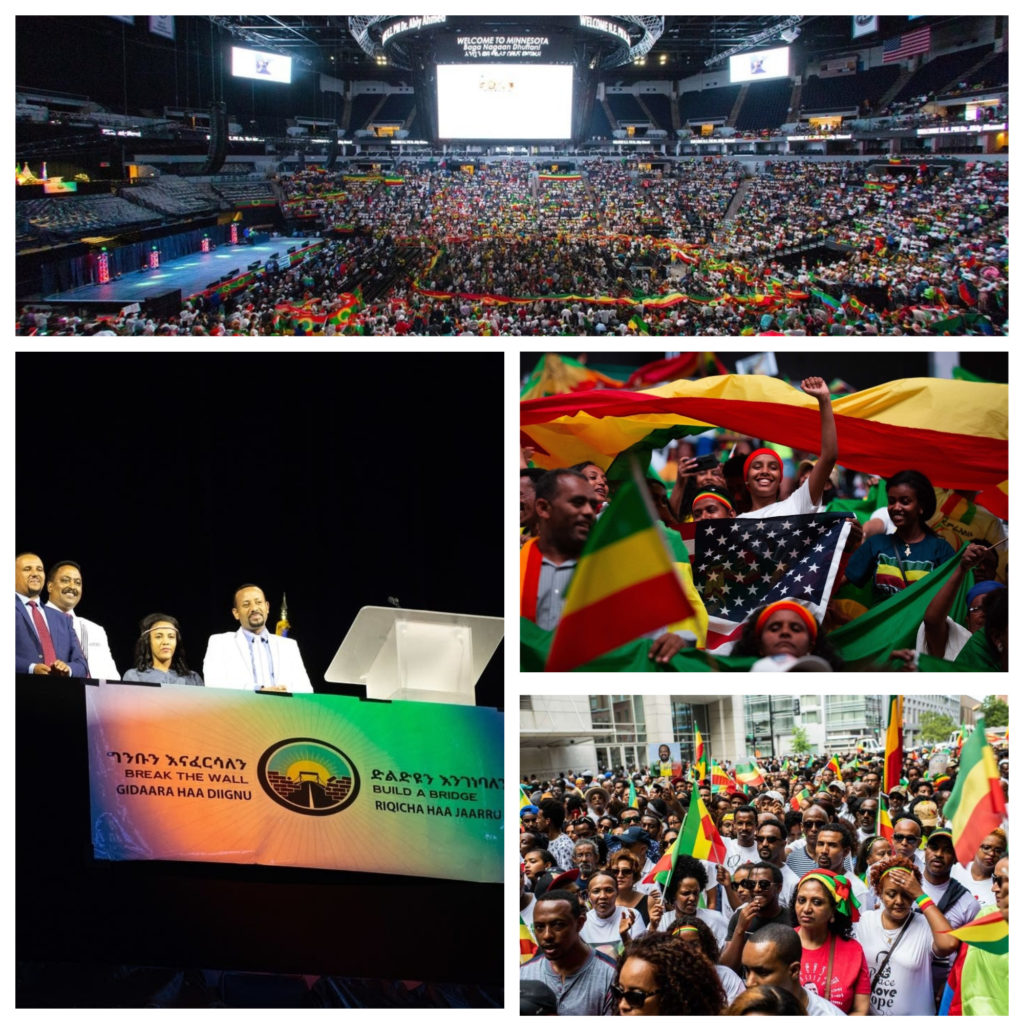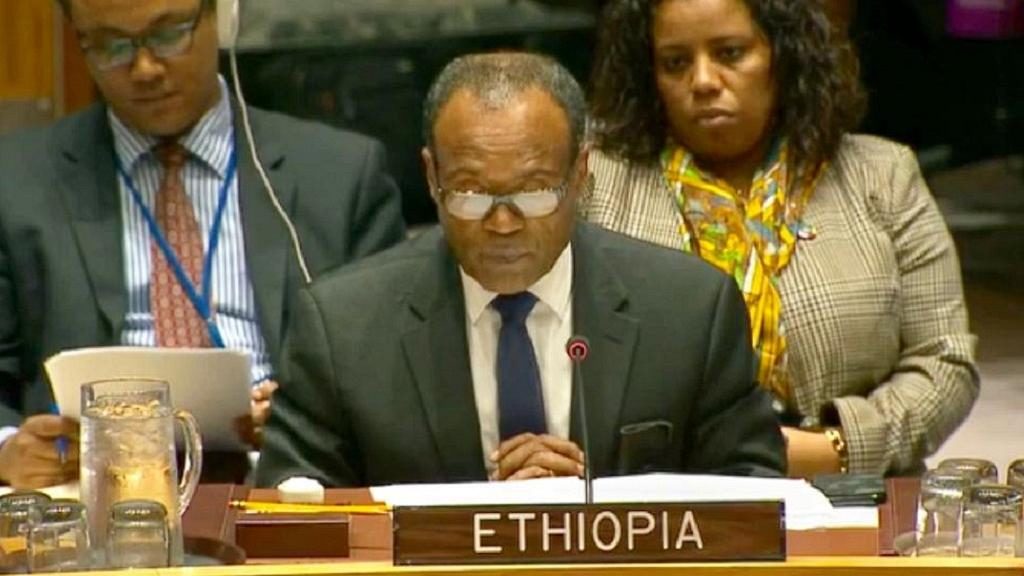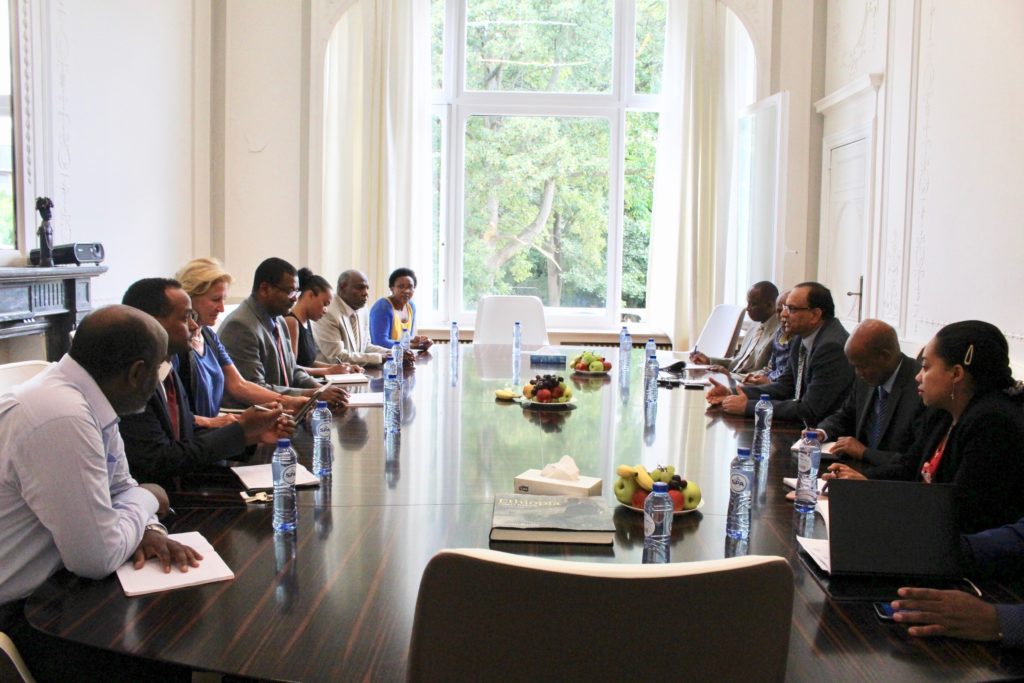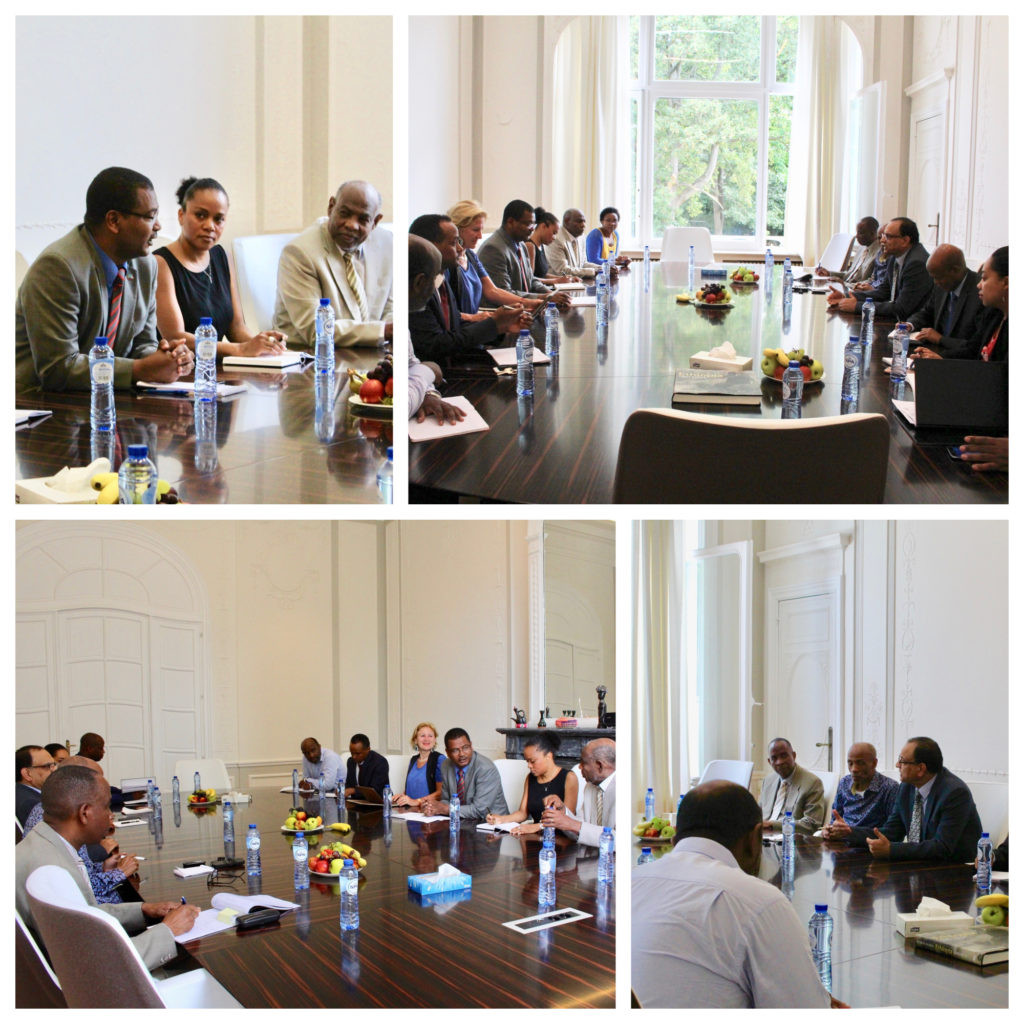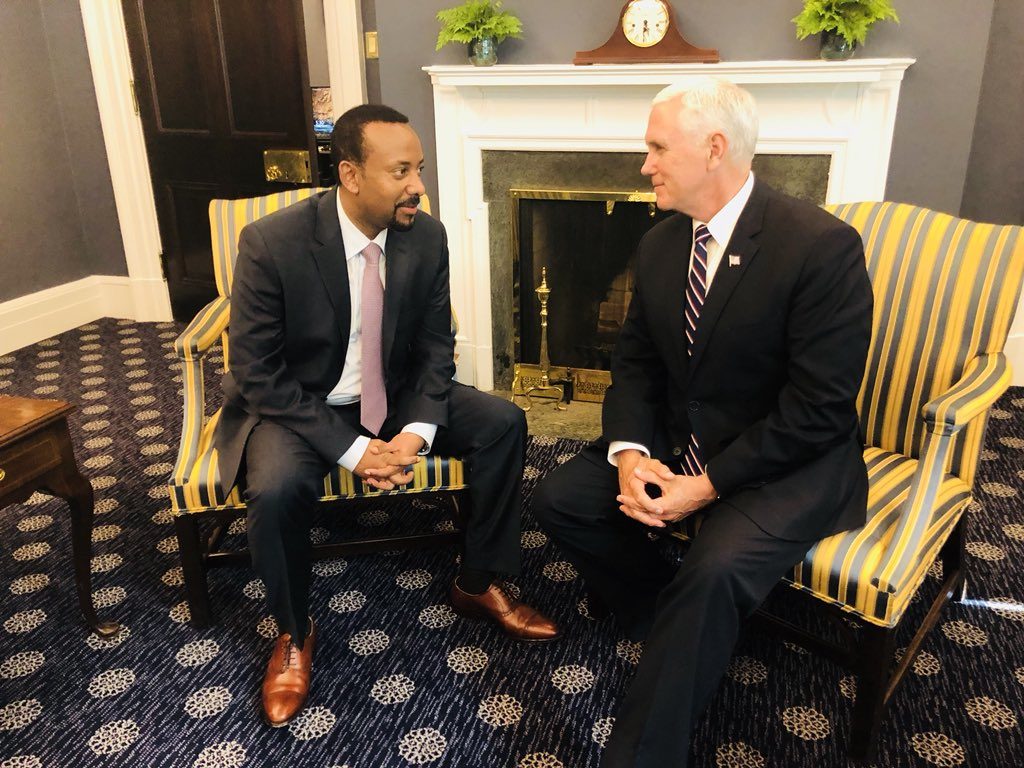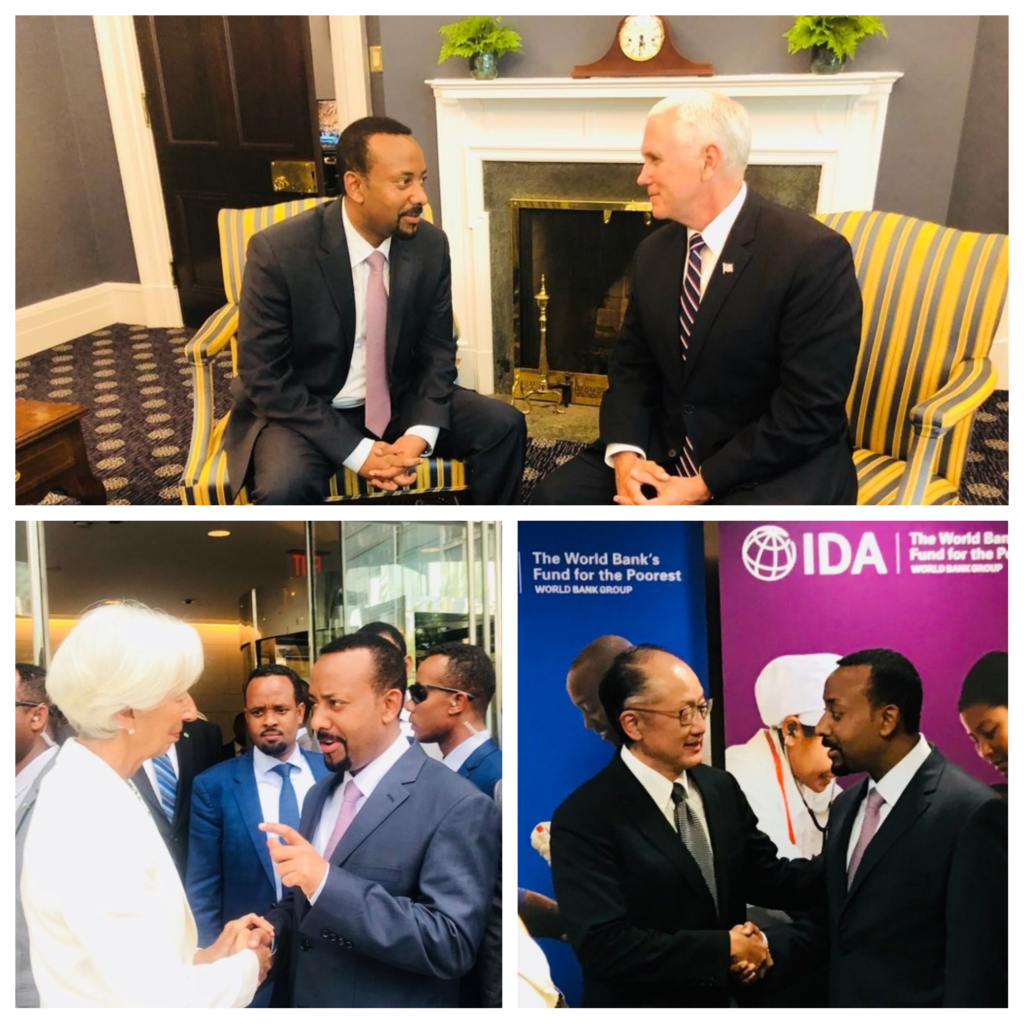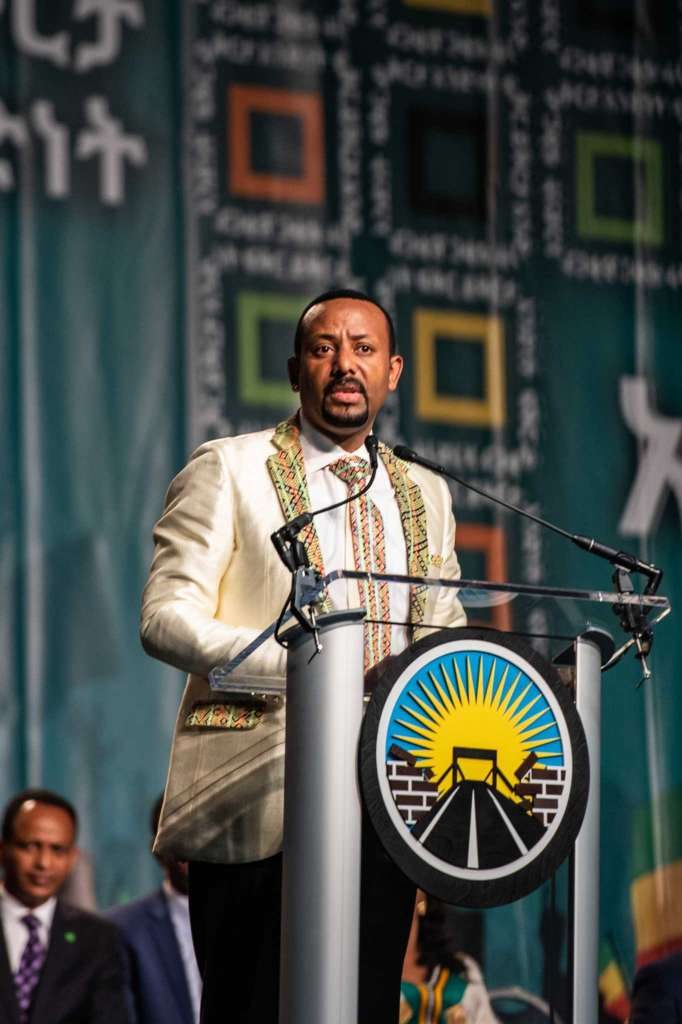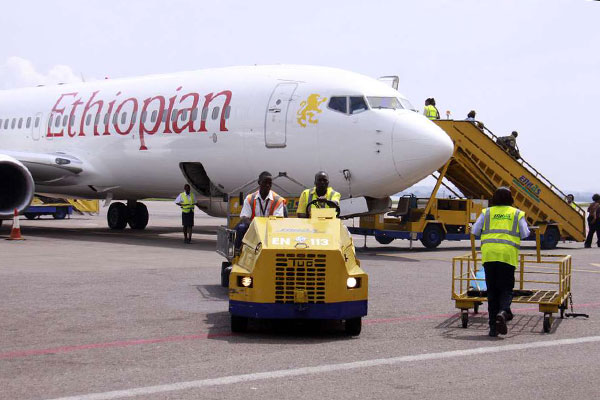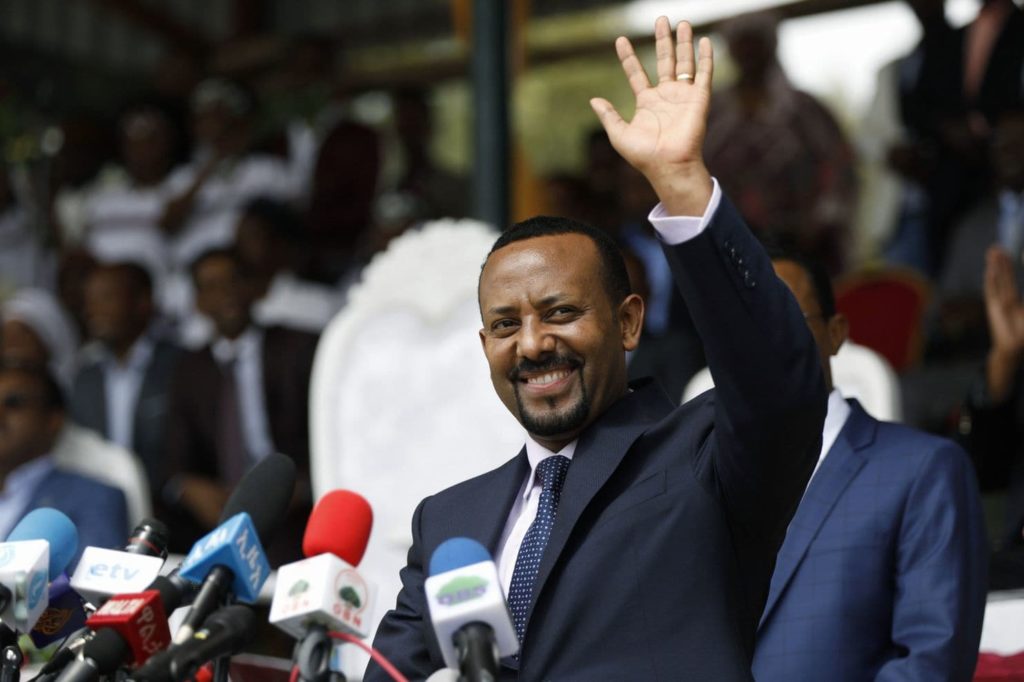Followers of Ethiopian Orthodox Church are elated as the fourth Patriarch returned home after 27 years in exile.

The Fourth Patriarch of Ethiopian Orthodox Tewahdo Church, Abune Merkorios, arrived today in Addis Ababa after 27 years in exile. He was on the same flight with Prime Minister Abiy Ahmed and some members of his cabinet who were touring three cities in the United States.
He lived in the United States throughout his exile live occasionally visiting congregations in other cities.
Upon arrival at Bole International Airport, Abune Merkorios was warmly greeted Abune Mathias, the sixth patriarch of Ethiopia, senior government officials and the Ethiopian church faithful.
As well, a spiritual welcome ceremony was organised in the morning at Kiddist Selassie Menbere Tsebaot (Holy Trinity Cathedral Church) in the capital.
On August 4, the Ethiopian church has organised another reconciliation conference at the Millennium Hall which will be attended by both patriarchs. Twenty-five thousand Ethiopians are expected to participate in the event.
The patriarch’s decisions to return home came after a negotiation process between what used to be the Holy Synod based in Ethiopia and the Holy Synod in the United States reached an agreement last week to end the schism within the church.
The Ethiopian church has declared the unity of the Holy Synod, and there will not be two synods. And Holy Synod lifted the excommunication that was in effect for well over two decades.
Remarking on the development, the Abune Mathias said, “He is very happy that the reconciliation effort was finally a success…and he is personally very happy that reunification of the church happened at this time.”

As per the arrangement in the agreement, the fourth patriarch is to lead the spiritual service while the sixth patriarch is to carry out administrative functions.
Prime Minister Abiy Ahmed is credited for taking a keen interest and following up closely the negotiation process which is believed to have speeded up the reunification of the church. He, in fact, witnessed while the reunification was declared from Water Gate Hotel in Washington DC.
In a statement, he gave shortly after arrival at Bole International Airport; the prime minister said his visit to the United States was a success. Lemma Megersa, his former boss, comrade within Oromo People’s Democratic Organization (OPDO) and president of Oromo regional state, also rated the US tour as a success and asserted that “it is not possible to exclude Ethiopians in the Diaspora from the task of building the country.”
